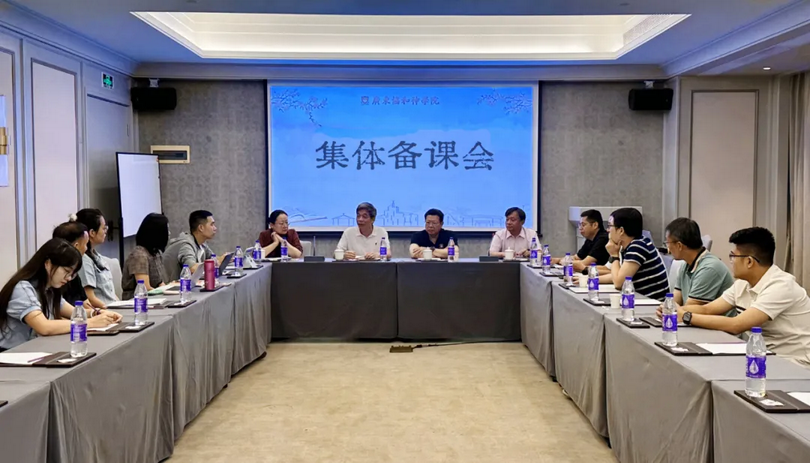On August 27, Guangdong Union Theological Seminary held a lesson preparation session for its faculty to examine the challenges and opportunities in the digital age of artificial intelligence.
According to the seminary, full-time faculty members exchanged insights on their courses, addressing teaching plans, major challenges, instructional methods, exam design, student performance analysis, and contextualized teaching reforms. Discussions also touched on the risks of student cheating in the AI era.
Vice Dean Wu Ning, drawing on his own experience, urged faculty to become familiar with and make constructive use of AI-powered educational tools. He emphasized optimizing teaching strategies, designing learning pathways suited to student development, and enhancing instructional quality, while also assessing the strengths and limitations of AI tools to prevent overreliance.
Rev. Cai Jianwei, vice president and dean of Academic Affairs, concluded that collective lesson preparation serves as a vital platform for teacher collaboration and innovation, helping to improve the relevance and quality of teaching through shared learning and resources.
Guangdong Union Theological Seminary, located in Guangzhou, traces its roots back to the Canton Union Theological College, founded in 1914. Originally established through the collaboration of multiple international mission societies and Chinese church conventions, the seminary was known for its ecumenical foundation. It later became affiliated with Lingnan University before closing in 1960. In 1986, the seminary was re-established under its current name to honor its rich legacy and to continue equipping church leaders in Guangdong. Today, it occupies a 10,000-square-meter campus and has trained over 1,000 church workers, with graduates serving in approximately 75% of the province's pastoral roles.












